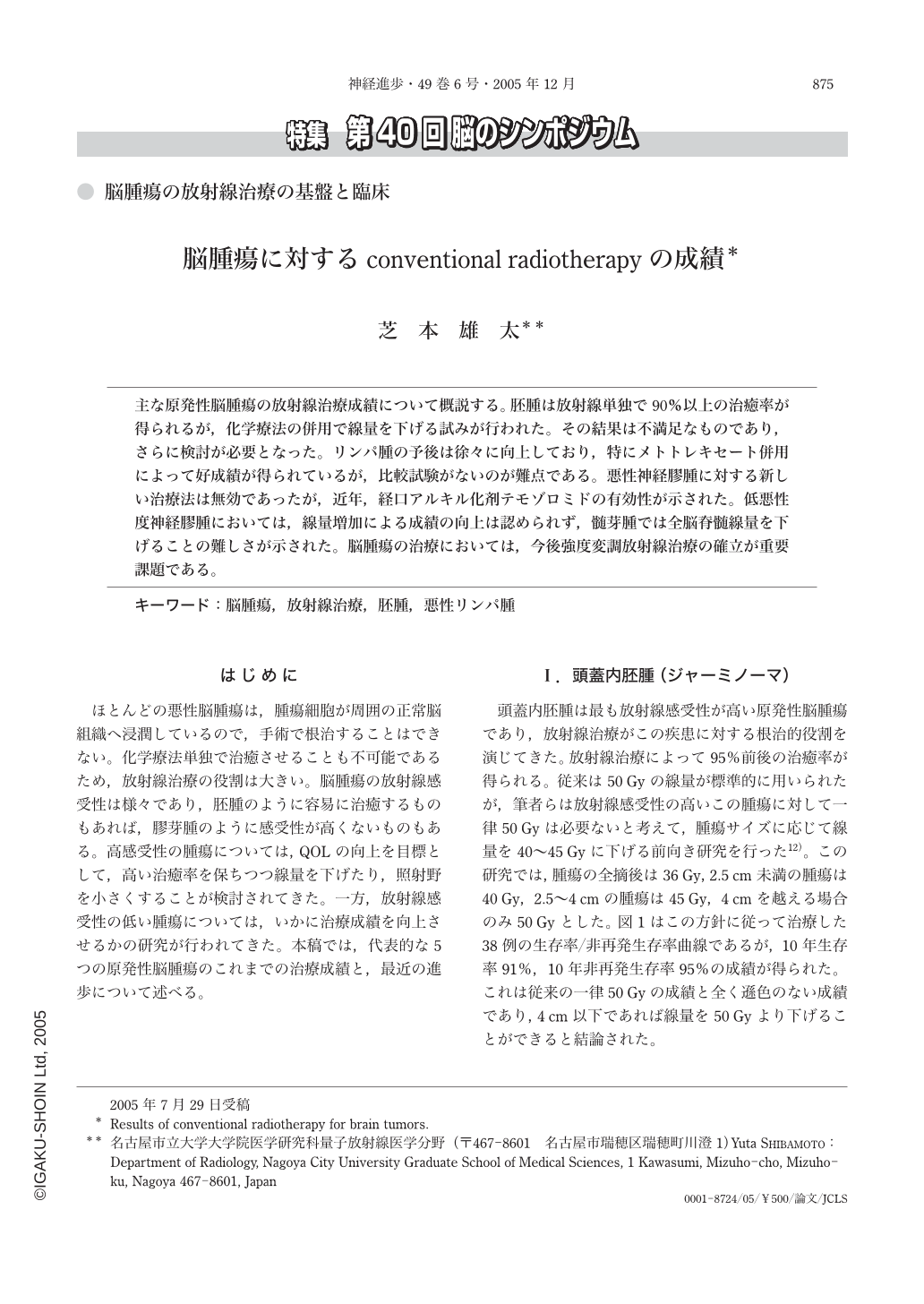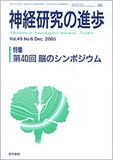Japanese
English
- 有料閲覧
- Abstract 文献概要
- 1ページ目 Look Inside
主な原発性脳腫瘍の放射線治療成績について概説する。胚腫は放射線単独で90%以上の治癒率が得られるが,化学療法の併用で線量を下げる試みが行われた。その結果は不満足なものであり,さらに検討が必要となった。リンパ腫の予後は徐々に向上しており,特にメトトレキセート併用によって好成績が得られているが,比較試験がないのが難点である。悪性神経膠腫に対する新しい治療法は無効であったが,近年,経口アルキル化剤テモゾロミドの有効性が示された。低悪性度神経膠腫においては,線量増加による成績の向上は認められず,髄芽腫では全脳脊髄線量を下げることの難しさが示された。脳腫瘍の治療においては,今後強度変調放射線治療の確立が重要課題である。
Radiation therapy plays an important role in the definitive treatment of primary brain tumors. In this article, results of conventional radiotherapy are discussed based on the authors' experience and review of recent publications. Germinoma is highly curable and its cure rate is higher than 90% with radiation therapy alone. In recent years, combination of systemic chemotherapy and low-dose radiation is being investigated, but the results of the study employing chemotherapy plus focal radiation with 24-Gy dose are disappointing. The second study investigating the combination of chemotherapy and extended-local radiation is ongoing. In future, combined chemoradiotherapy should be compared, with respect to cure and complication rates, with intensity-modulated radiation therapy(IMRT), preferably in a randomized fashion. The cure rate of primary CNS lymphoma is improving but does not exceed 50%. Although the results of phaseⅡ studies on the use of preirradiation high-dose methotrexate are encouraging, the superiority of radiochemotherapy over radiotherapy alone has not been proven in randomized trials. Prospective randomized studies to prove the superiority of the combined-modality treatment are desirable. In medulloblastoma, radiotherapy using modern techniques has yielded cure rates of up to 70%, but complications against CNS are not negligible, especially in young children. Two randomized studies have shown the difficulty in reducing the dose to the cerebrospinal axis even in low-stage patients, but this issue should be further investigated to improve the quality of life of surviving patients. Prognosis of malignant glioma patients still remain poor. Randomized studies have revealed the effects of radiation in terms of prolonging survival and progression-free survival of patients with malignant glioma, but the cure rate remains low. Although chemotherapy had limited effect, the efficacy of temozolomide has recently been reported. In low-grade gliomas, the efficacy of radiotherapy was shown in prolonging progression-free survival time but the dose-effect relationship was not observed in recent randomized studies. Radiation therapy also plays an important role in other brain tumors such as ependymoma, craniopharyngioma and pituitary adenoma. Stereotactic irradiation is being increasingly used. Fractionated stereotactic radiotherapy should be further investigated for benign tumors. In future, establishment of IMRT and controlled studies to prove its efficacy will be important in the field of neuro-oncology.

Copyright © 2005, Igaku-Shoin Ltd. All rights reserved.


